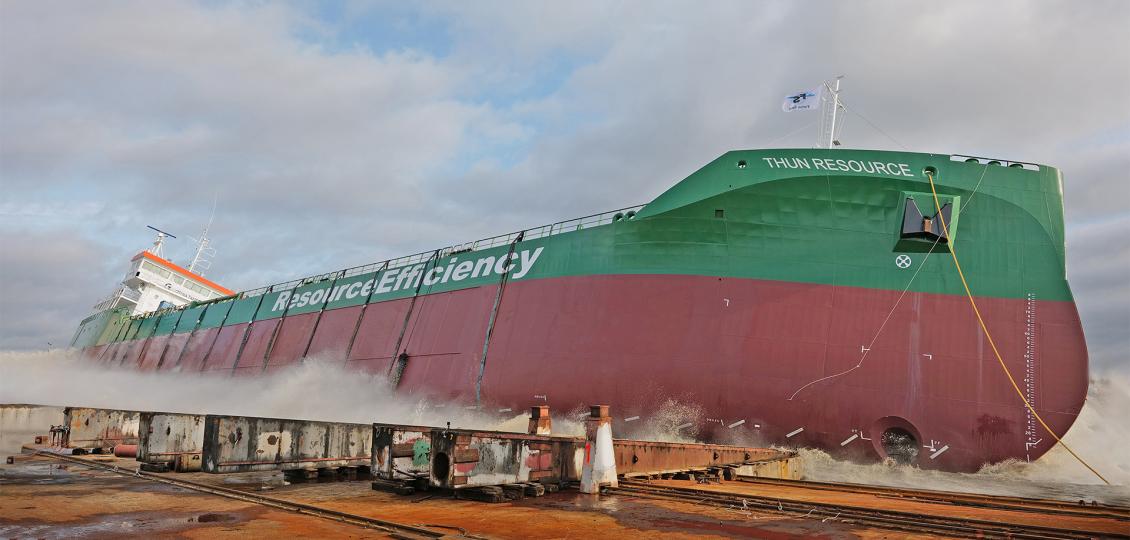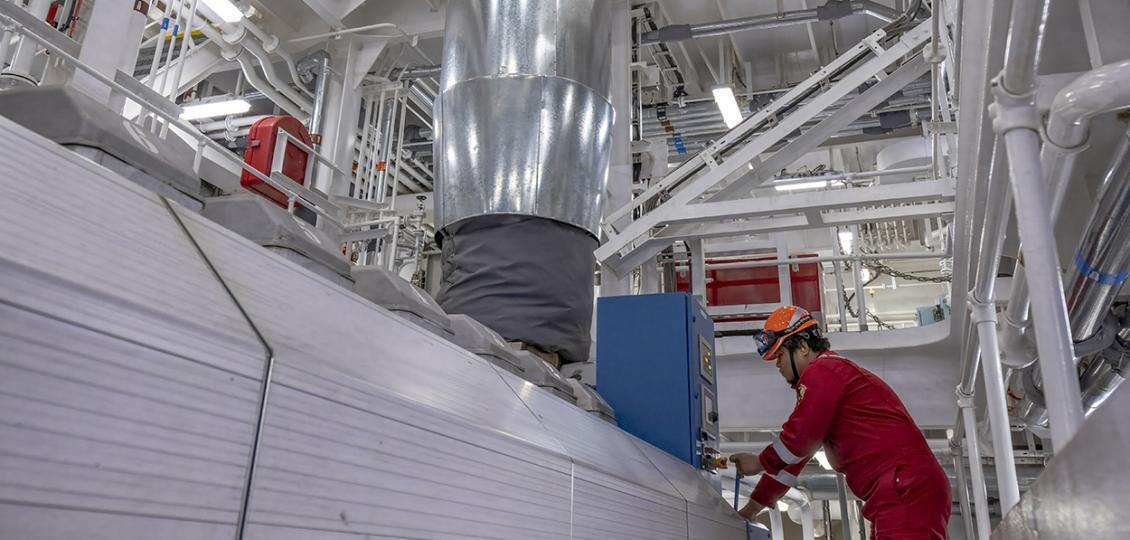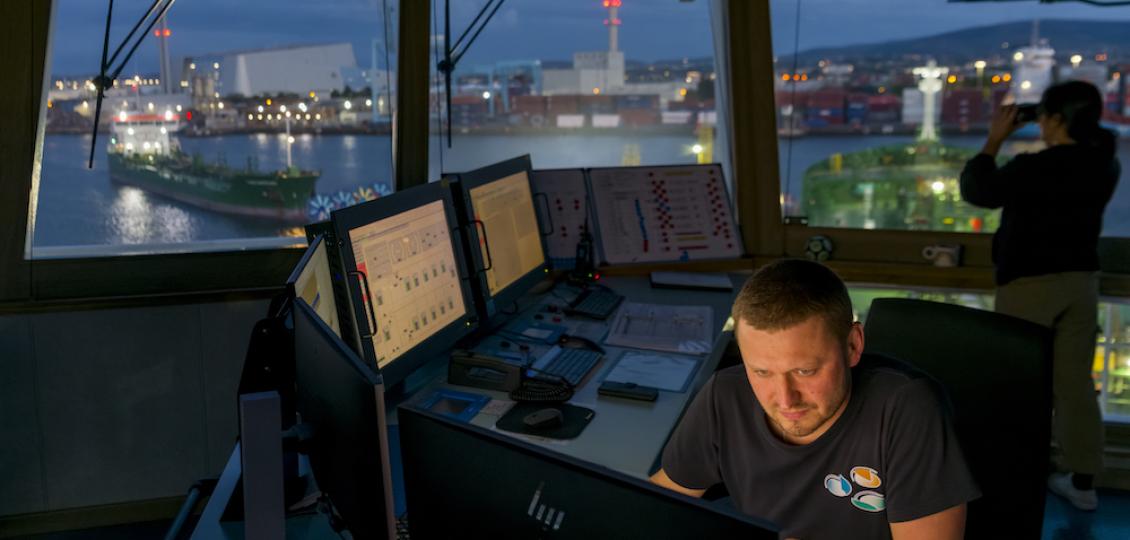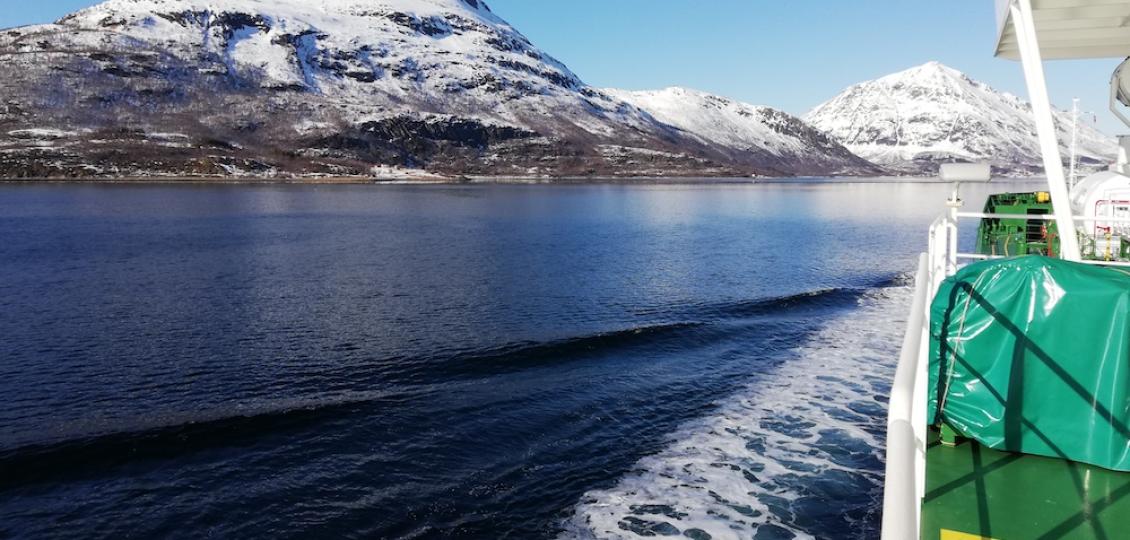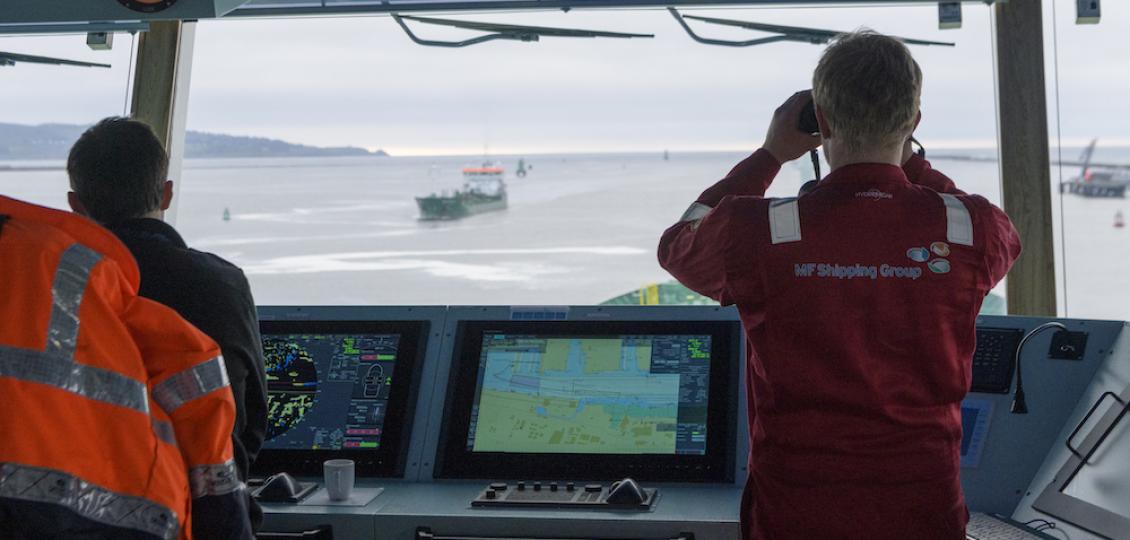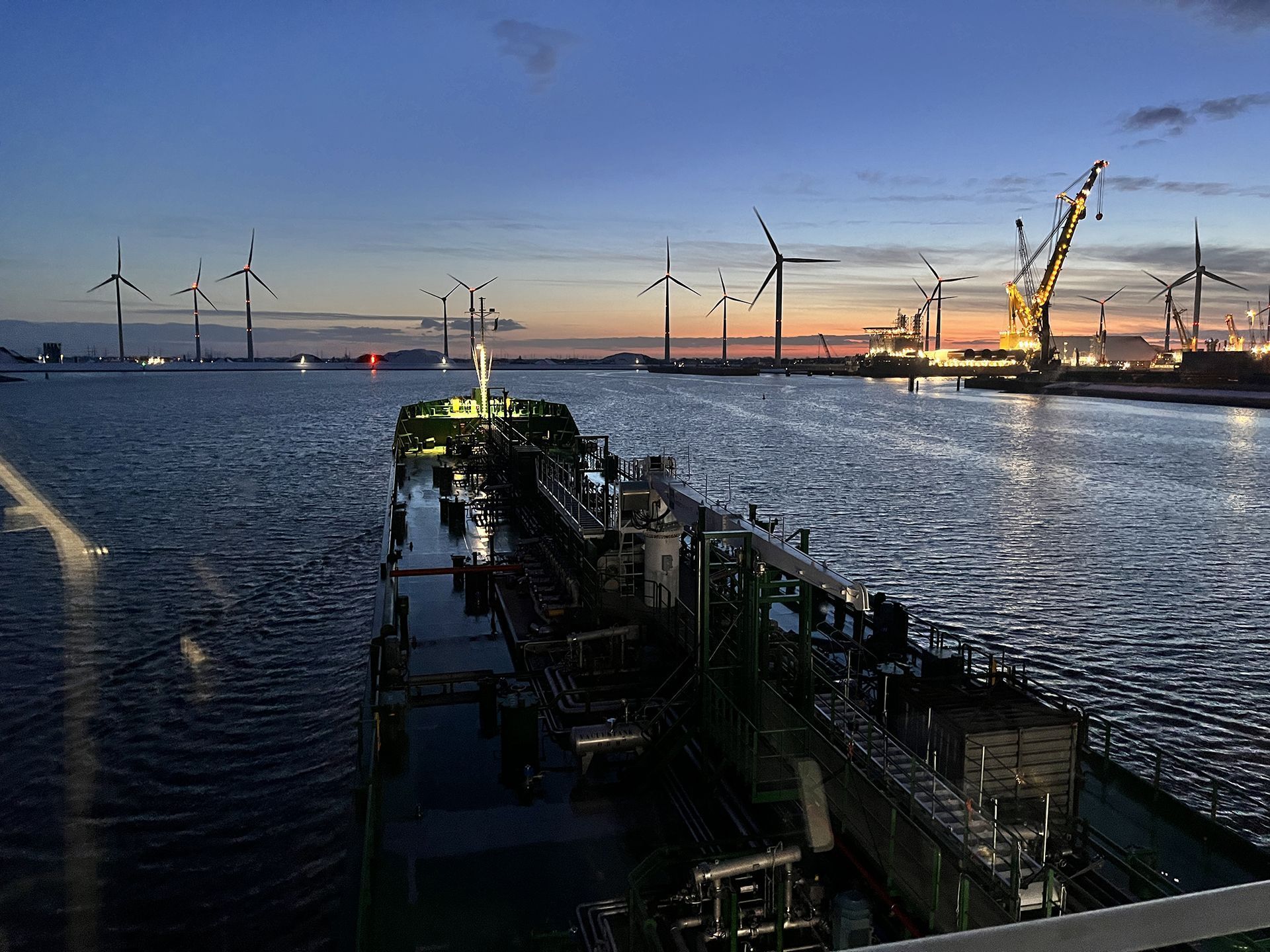
Sustainability in shipping
MF Shipping Group is most certainly no newcomer in the quest for cleaner and greener shipping solutions. MF Shipping Group is explicitly dedicated to protecting and maintaining the marine environment in which our vessels sail. We apply strict standards to prevent pollution, while complying with legislation and striving to improve our environmental measures.
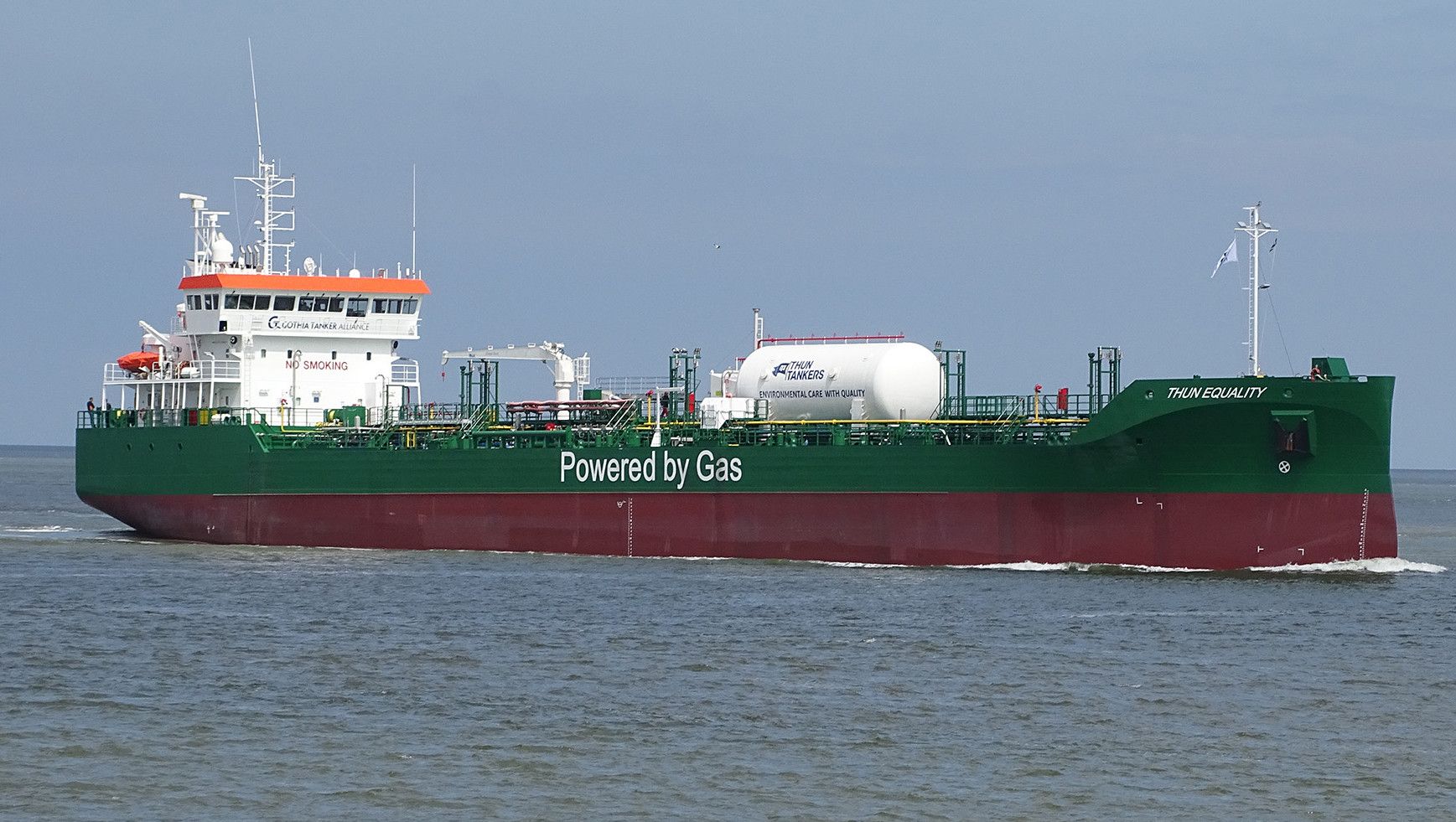
LNG-powered vessels
Since 2015, we have played a pioneering role thanks to our five LNG-powered vessels, including the innovative ‘Greenland’: the world’s first dry cargo vessel powered by LNG. This pioneering initiative has resulted in striking environmental advantages: an impressive 30% drop in CO2 emissions, a considerable decrease of 85% nitrous oxide (NOx) and a striking reduction of 99% sulphurous oxides (SOx) versus traditional diesel engines.
Alternative fuels and technologies
Although LNG was a sensible choice back then, we are now aware that it also brings with it challenges and disadvantages. We are therefore looking ahead and continuing to invest in even cleaner fuels and technologies. We are extremely proud of our involvement in leading initiatives, such as the Clean Shipping Index (CSI) and the Environmental Shipping Index (ESI). We are also supporting a promising start-up in the field of battery technology, and we continue to collaborate with shipowners and suppliers to explore environment-friendly options.
10 November 2023 saw the successful launch of the state-of-the-art tanker, Thun Resource. This milestone marks the start of a series of six ‘R-Class’ sister ships which distinguish themselves in their strong focus on resource efficiency and environmental friendliness. Built at the Ferus Smit BV shipyard, these vessels are scheduled for delivery from 2024. The ‘R-Class’ series represents advanced vessels, designed with innovative functions, which include adaptive propulsion for minimisation of energy consumption, while being prepared for connection to shore-side electricity, a UPS battery package and the latest resource-efficient machines.
Our course in Safe and Sustainable Ship Management
As a sustainable ship manager, we are setting sail towards a more sustainable future for our planet, and striving to have a positive impact on the world and the communities in which we operate.
We have great responsibility for the protection of our oceans and marine ecosystems, for example. We therefore apply strict standards and procedures to prevent environmental pollution, while continuously focusing on improvement. Even where regulations allow controlled disposal of waste at sea, we ensure that the waste streams generated on board, such as sludge and bilge water, are always disposed of land. In our case, sustainability does not simply translate into reducing CO2 emissions, but also actively combating harmful consequences, such as leakages, plastic pollution and waste, in order to protect the biodiversity and underwater life.
We also strive not only to create value for our corporate partners but also for the communities in which we are active. We support local communities in their social and economic development. We do so through local sponsoring and via our MFG Seafarers Fund.
International standards and the Sustainable Development Goals
MF Shipping Group is committed to the principles of the United Nations Global Compact, with a specific focus on human rights, employment conditions, environmental protection and combating corruption. We regard these principles to be an integral part of our mission and vision.
Sustainability is not just rhetoric for us, but rather a deep-rooted conviction. In line with our dedication to sustainability, we actively strive to achieve the Sustainable Development Goals (SDGs) of the United Nations in our corportate activities.
Read more about our strategic focus and the Sustainable Development Goals we are working towards.

